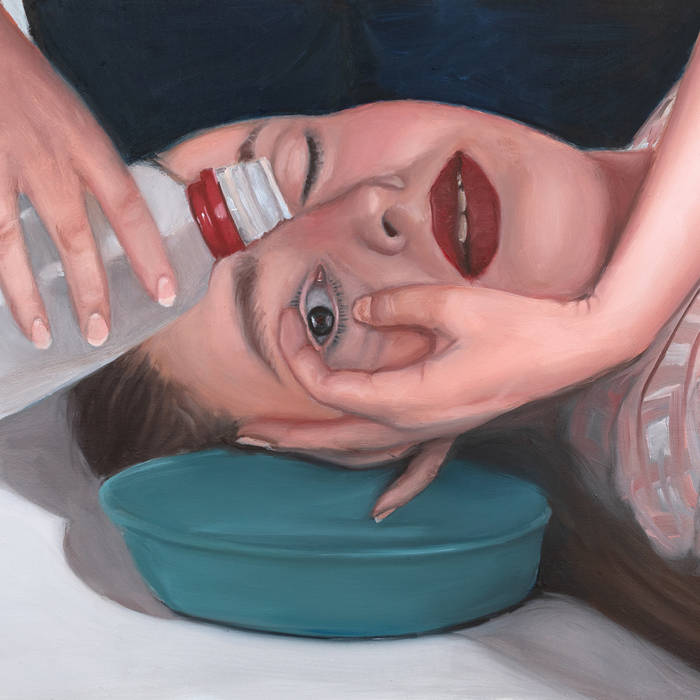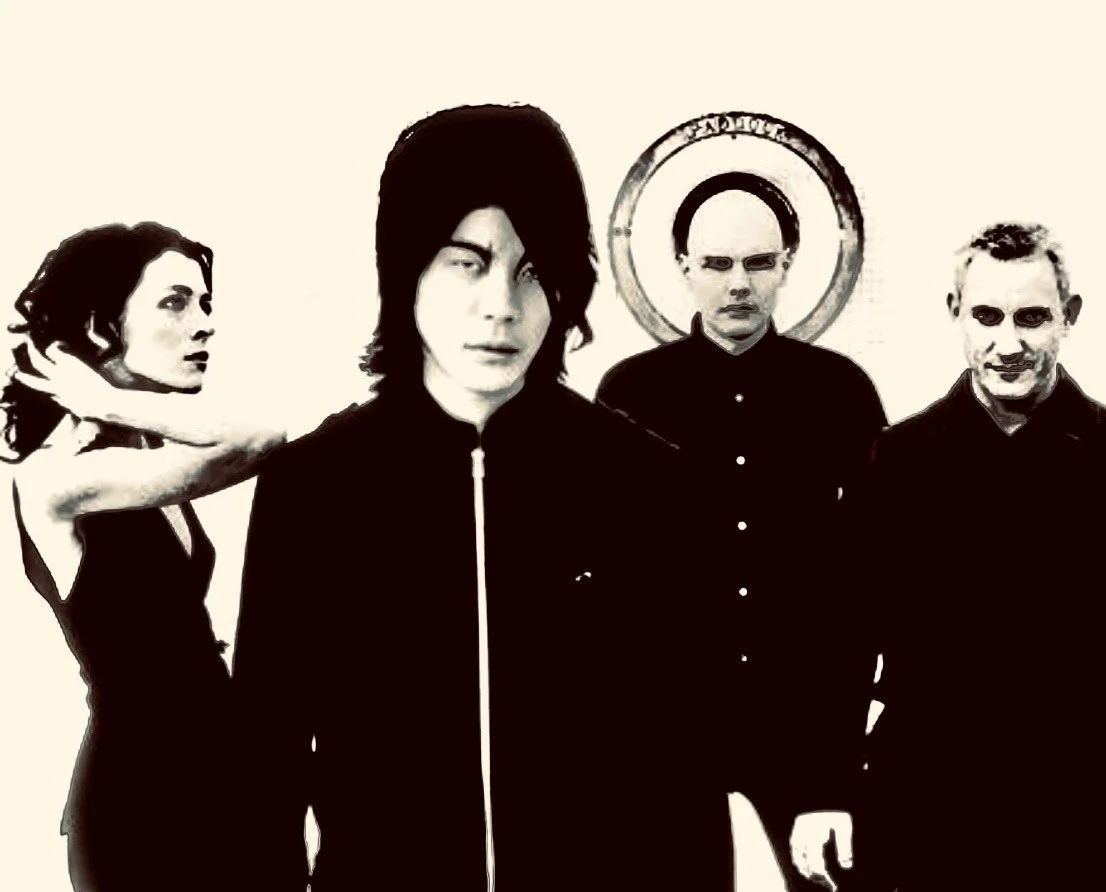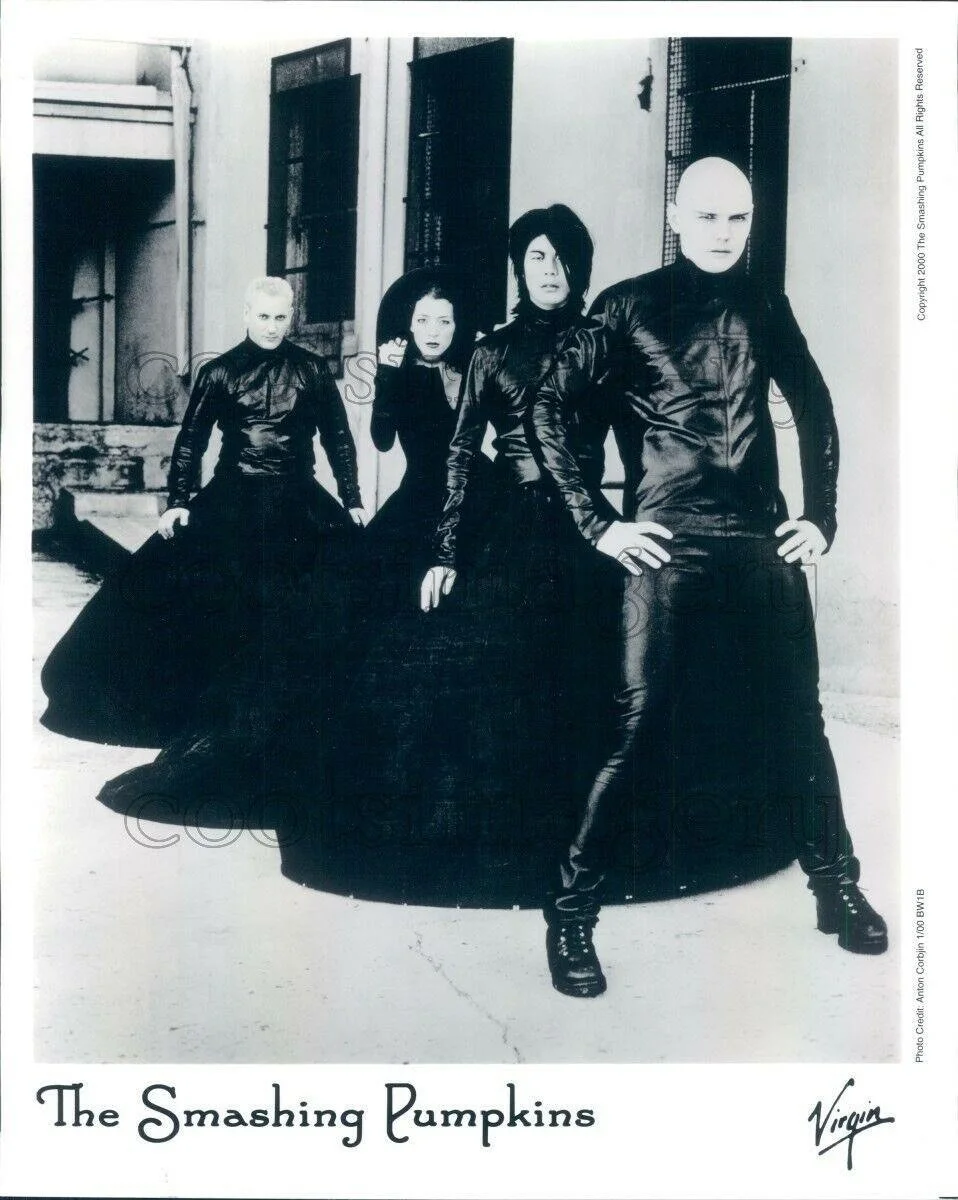Ferris Wheel Regulars – Back in the Jetstream | Album Review
/Hunkofplastic Records
A few summers back, I took a trip to DC for the 2024 edition of HFStival, an attempt to revive the long-defunct fest that had been a must-stop in the late 90s and early 2000s for alt rock radio’s top bands. The 2024 lineup was made up mostly of groups that were big during the festival’s heyday—think Tonic, Lit, Filter, etc.—with Death Cab for Cutie and the Postal Service closing out the show. I mostly went to catch Postal Service and Jimmy Eat World, but neither band was at the top of my mind as I walked out of Nationals Park at the end of the night. What stuck with me were two things:
People are feral (sexually) for Gavin Rossdale in a way that I did not anticipate.
Incubus rule.
I tried to push the first thought out of my head by mulling over the second. I used to love Incubus back when I was in middle school, but I totally fell off listening to them when most other people did. Seeing the band live made me regret throwing them aside, and it also got me thinking about their legacy. This was right around the time that the Deftones resurgence was at its height, where it felt like you couldn’t open Instagram without hearing a new band using them as a sonic reference point. Could something similar happen for their contemporaries in Incubus?
As 2024 turned to 2025, the answer appeared to be a resounding no, and as 2025 rolled on, that no only got louder, so I stopped thinking about it. Then, I started listening to this new Ferris Wheel Regulars record, Back in the Jetstream. When I got to track three, “Dragonflies,” and heard the opening lines “There’s no other way / To say I love you / I find it kinda strange / The way the clouds move,” a subtle pang in the vocals and the timbre of the guitars immediately brought me back to the first time I heard Morning View. This is what I was looking for.
Before I get over my skis here, I want to make clear that I’m not trying to say that this record rises to the level of straight-up Incubus worship; Ferris Wheel Regulars are not treating Brandon Boyd the way that The Gaslight Anthem treats Bruce Springsteen. At its core, this is more of a post-hardcore record than anything else, though the record’s shoegaze and “space rock” tags on Bandcamp also make groups like Hum an easy reference to reach for. Still, there’s just so much here—the soft to loud shifts, sledgehammer distortion, the digital processing on breakdowns—that presents what I was looking for when I started hoping to see more Incubus pulls in contemporary music. It’s part of the palette in a way that’s very compelling to me. For example, “Trajectory” pulls from a similar bag of tricks as “Nowhere Fast,” from the shift in character between verse and chorus to the feedback sounds over the closing fade out. I love to see it.
Back in the Jetstream is Ferris Wheel Regulars’ third record, but they’re a band that’s new to me, first coming onto my radar last December when I started to see hype for lead single “Wires Cut for Two” on Twitter. What most impressed me about the track when I first listened to it was that the group didn’t treat their soft sections as an afterthought. Sometimes when I listen to bands whose bread and butter is heavy/distorted guitar, it’s clear that they’re only getting softer to create contrast for contrast’s sake. Ferris Wheel Regulars are at their best when they’re noisy, but when they pull back—like on the first verse of “Wires Cut for Two”—the music is still inspired, letting the vocals shine through and leaving room for more agile guitar work.
Where Ferris Wheel Regulars really excel though is when they fully step on it, like the closing breakdown of “Scarlet,” where screaming vocals come in to duel with the main voice line and a heavy rendition of the song’s main riff. The interlude after the first verse of “Moves Like Clouds,” with its soaring guitar lead, is another section that only sounds better the more you turn up the volume. It’s music made to make your windows shake.
Another thing that really stood out to me about this record was its thematic consistency. This is most obviously appreciated when you look at its bookends, with “Sister Star’s” refrain of “Take me out there / Somewhere Far / There’s blue out there / Somewhere far” morphing into “Take me out there / Somewhere far / Feels good nowhere / Just like stars” as the album closes with “Just Like Stars.” In between those two moments, the sky is a constant presence throughout the album, mentioned in every track, sometimes presented as a balm and other times as cold comfort. Particularly striking to me is the opening of “Simple Systems,” where we hear the lines: “You’ll see the sunrise / Winter follows mine.” There’s this economy of words that you can only really tap into when you’re laser-focused on something as universal as the sky above. Because we’re seeing the heavens hit again and again throughout the record, there’s this cumulative impact that makes that “Feels good nowhere / Just like stars” hit so incredibly hard.
This speaks to what is perhaps my favorite thing about Back in the Jetstream, the fact that it’s a record that doesn’t wink at you. Though influences of 90s post-hardcore and 2000s alternative come through clearly in the music, there’s nothing about the presentation that’s trying to be meta about it; there’s no cutesy song titles or comedic interludes, nothing memeified. There’s room for all kinds of music with different tones and moods out there, but the straightforward and earnest approach that we see here is what resonates with me the most. Because of this approach, you get to see the music standing on its own, compelling not because it makes you feel like you’re in on something, but because someone is truly letting you in. When you do hear pieces of artists from the past poking through, it feels more reverential than referential, the sum of a lifetime of listening to music spilling out rather than a choice made to seem clever. You don’t need to be well-versed in the encyclopedia of emo to get what’s going on here; it’s just very good music that’s ready to meet you where you’re at, and you can’t really ask for much more than that.
Josh Ejnes is a writer and musician living in Chicago. He has a blog about cassette tapes called Tape Study that you can find here, and he also makes music under the name Cutaway Car.












